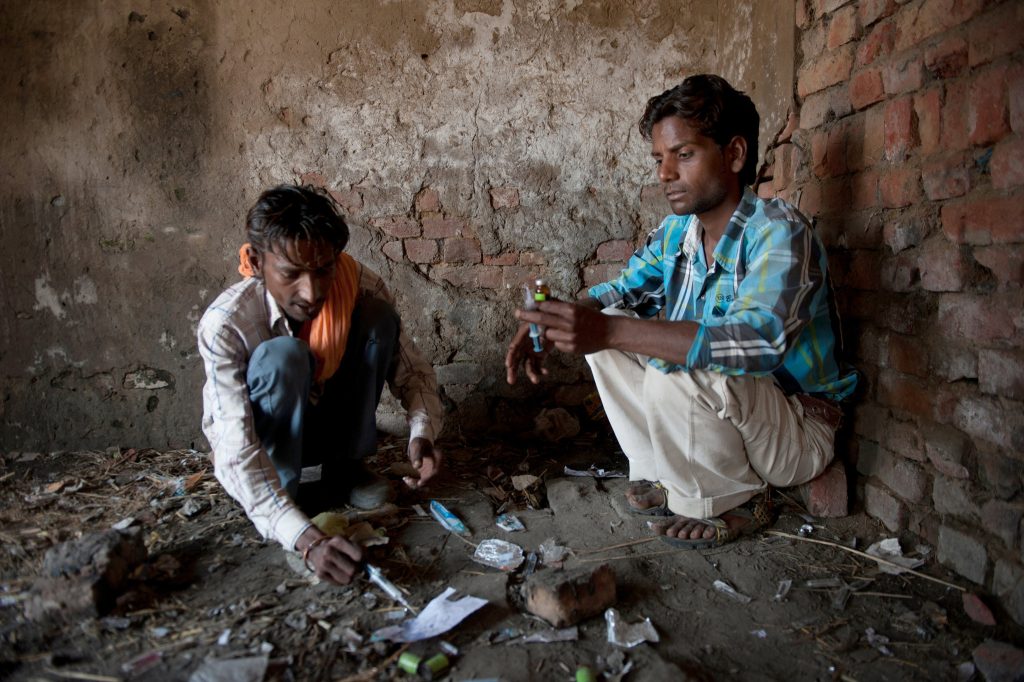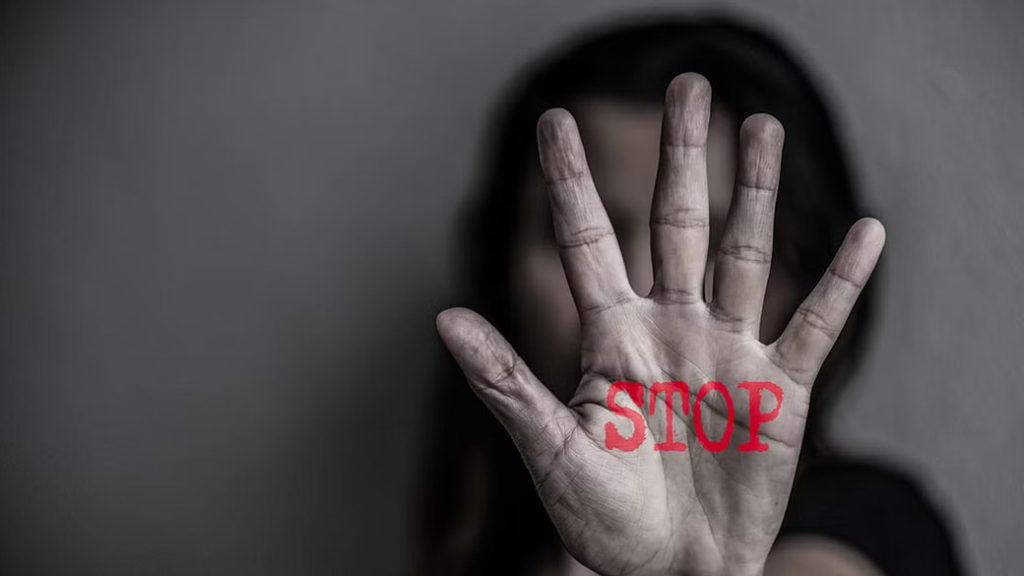What is the meaning of addiction?Informative guide

There are times when you cannot control certain aspects even though you might be aware of their harmful effects. This is the point when addiction sets in. Hence, it becomes imperative for us to know what is the meaning of addiction.
Addiction is the inability to stop using a substance, or an extreme need to partake in an activity even though one wants to stop. Someone who is addicted to something feels an extreme lack of control. They become so used to a specific substance or a behavior, that they just have to have it or do it otherwise they experience both psychological and physical discomfort.
It is a complex brain disorder and a stage where one feels helpless like there is no ‘choice’ now. But the good news is that addiction is very much treatable. Because of its chronic nature, addiction treatment isn’t easily feasible. Relapse or return to using drugs or behavior can be part of the process for some people. But addiction can be managed successfully with the help of the right-supportive people.
Common symptoms indicating that someone is experiencing addiction
- Experiencing extreme cravings, and being unable to stop oneself from taking a substance or partaking in an activity even after being aware of its problematic effects on one’s health and relationships
- Loss of appetite or changes in appetite
- Irregular sleeping patterns
- Loss of interest in doing things one used to enjoy
- Apparent lack of energy and motivation to do activities of daily life
- Noticeable changes in weight and appearance
- Withdrawal symptoms when one abruptly stops
What is Addiction and What are the Types of Addiction?
When people hear the word addiction, the first thing which comes to their mind is substance use. But one would be surprised to find out that there are other forms of addiction as well. Addiction namely are of two types ―
Drug (or Substance) Addiction
– Addiction of this type involves the use of substances. An individual suffering from drug addiction may start indulging in substances just because they like how it makes them feel or to simply escape reality. They might think they have control over the amount of substance they choose to indulge in, but in course of time, frequent and regular use of some drugs impairs the normal functioning of the prefrontal cortex of the brain, a part responsible for executive functioning like decision making, short-term memory, etc.
And naturally, one is likely to repeat something which is rewarding, and so, one is motivated to indulge in using a substance again and again. These substances target the brain’s reward system, some faster than others, and one is triggered to chase the feeling of intense pleasure termed as “high” more and more, therefore seeking the substance, in turn, more and more, even in risky ways, uncaring of the consequences.
Some of these substances whose misuse can lead to addiction are cannabis, alcohol, nicotine, opioids or pain relievers, cocaine, amphetamines, and methamphetamine.
Behavioral (or Non-Substance) Addiction
– Addiction of this type involves compulsive behavior. An individual suffering from behavioral addiction would engage in naturally rewarding, non-substance-related compulsive behaviors, even after being aware of the harmful consequences of it on one’s physical & mental health, and financial well-being.
Behaviors to which people commonly get addicted and seek therapy, are exercising, sex, food, porn, gambling, shopping, internet or gaming, and work.
Difference Between Drug Addiction and Drug Dependence
Many confuse drug dependence with drug addiction, so it is important to understand the difference between the two. People could be dependent on a substance or a drug and may not be addicted to it yet. Dependence can be a prior stage of addiction, where a person experiences tolerance and withdrawal. But again, someone experiencing drug dependence or tolerance doesn’t mean they necessarily will get addicted as well.
Addiction is also considered a disease, causing biochemical changes in the brain because of compulsive use of a substance despite its harmful consequences, further involving changes in the reward system, memory, behavior, and motivation of a person. Drug dependence and tolerance on the other hand are not a disease.
Signs that someone might be struggling with addiction
Acting or becoming more secretive
Neglecting responsibilities
Performance decreasing in work, school, or other aspects of daily life
Becoming emotionally volatile
Abrupt changes in social circle
Engaging in risky behaviors
Changes in hygiene and appearance
Various Causes of Addiction
Addiction doesn’t develop overnight or by simply engaging with something once. Addiction manifests itself over time, in four stages, which are experimentation, regular use, extreme or risky use, and addiction. A lot of factors play a vital role in how one develops an addiction, some of these factors are :
- Family and Genetics
– If there’s a history of someone in the family struggling with addiction then one is not necessary, but is more likely to develop an addiction.
- The Brain
– Naturally, activities like exercising, eating a favorite food, spending time with loved ones, exploring a new place, listening to a favorite song, or finding a new one, trigger the release of dopamine, giving us pleasure. Drugs on the other hand are a shortcut to receiving this pleasure, some drugs even trigger a release of quite a strong dose of dopamine, providing much more pleasure. One may find this strong dopamine release all the more pleasurable and a great experience, but too much of dopamine released in course of time impairs the normal functioning of the prefrontal cortex of the brain, a part that is responsible for executive functions like decision-making, planning, short term memory, etc. And so, even when the prefrontal cortex would have alerted one, of the harmful consequences of a behavior, it is unable to, because its normal functioning has been impaired. This can lead to partaking in risky behaviors and drugs, which can then lead to addiction.
- Environment – Many times what kind of environment an individual is surrounded with plays a vital role in the development of addiction, as these environmental factors can have a strong influence on the individual. Some of these environmental factors are peer pressure, lack of supportive people around, unstable family environment, etc.
- Type of Drug or Behavior
– Some drugs and behavior are more highly addictive than others, so engaging with such types of drugs as opioids or opioid pain relievers, cocaine, heroin, and behaviors like gambling can lead to faster development of addiction.
- Mental Disorders – It is very likely for people with some specific mental disorders to develop an addiction. And some people, to cope with their painful feelings of mental health concerns, turn to addictive drugs or behaviors. Some mental disorders that are often seen repeatedly alongside addiction are :
- Attention – Deficit Hyperactivity Disorder (ADHD)
- Borderline Personality Disorder
- Bipolar Disorder
- Generalized Anxiety Disorder (GAD)
- Depression
- Schizophrenia
- Obsessive-Compulsive Disorder (OCD)
- Post-Traumatic Stress Disorder (PTSD)
Addiction Treatment – There is always a way out!
The first step towards addiction treatment is realization. Until and unless one recognizes (on their own or through the help of someone else) that there is a concern, they can’t be helped. Though once an individual recognizes that there is a concern, affecting their daily life, there are a number of treatment options ahead for them.
Addiction treatment plans vary from person to person, as with any other health concern, depending on the severity, the type of addiction, length of use, the amount of influence the substance or behavior has on the person, etc. Depending on the type of addiction treatment options also vary, and so here are some treatment options for the two main types of addiction :
- Treatments for Drug Addiction
- Detoxification
– This involves removing addictive substances or drugs from one’s body through a process, in a safe environment, while limiting the withdrawal reactions. Although, care must be taken in choosing where and by whom this detoxification process is being done. It should be medically assisted by qualified professionals only.
This process doesn’t treat the underlying causes of addiction, only provides clearance of drugs from the body in a safe environment. It is usually combined with various forms of therapies depending on the individual’s needs.
- Therapy
– Therapy is a crucial part of any treatment plan for addiction, whether it is combined with other options of treatment or not. Although depending on the severity of addiction, when an individual is ready to be in therapy also plays a key role.
A big reason why therapy is important is that even after detox when the body is empty of the substances, one can still have a strong urge to use the substance again and relapse, therefore, in therapy one learns how to better deal with cravings (sometimes in combination with medication), learns healthy coping strategies and to manage problems of life without resorting to substance use. Therapy also can help in exploring many underlying factors of why one could have started using a substance in the first place.
Psychotherapies like cognitive behavioral therapy (CBT), dialectical behavior therapy (DBT) and addiction counseling can also aid in the treatment of other underlying mental disorders if any. One thing to keep in mind is, that no one type of therapy works for every individual, and so, the type of therapy depends on what works best for an individual.
- Couples and Family Therapy
– When an individual struggles with addiction, the people who suffer most with the individual are the people closest to them. This type of therapy can help in fostering repair and closeness between couples and family members. It can also spread awareness about the struggles of addiction among family members and the significant other, which will help them in understanding their loved one, who is struggling with addiction better.
Support of family and close ones is the most essential ingredient one can ever need in the journey of treatment and recovery from addiction, as having their support of them can help one manage the struggles of life better, foster endless hope and motivation, and prove to be an empowering force in changing one’s life.
- Inpatient or Residential Treatment
– This type of treatment program involves living away from drugs in a structured environment, at a facility for a set period of time, and participating in various recovery treatment plans depending on what fits best for an individual.
- Outpatient Treatment Program
– This type of treatment program involves living at home and coming to a facility for a set period of hours in a week, depending on the severity of the care one needs, to participate in various recovery services like detox, addiction counseling, medication, therapy, etc.
- Self-Help or Support Groups
– Support groups can be a great source of learning that ‘you’re not alone even in the struggle with addiction, and for connecting with a community who are dealing with the same struggles. It can also foster motivation to learn more about addiction and better ways to get help.
- Treatment for Behavioral Addiction
- Therapy
– Therapies like cognitive behavioral therapy (CBT), group therapy, couples, and family therapy are most commonly used to treat behavioral addiction as they help vastly in the reframing of thoughts and behavior, empower individuals, provide support from peers struggling, in the same way, every day, and provides motivation to educate oneself of new and healthy ways of coping with stressors, respectively.
Above are only some types of therapy options mentioned, but as with drug addiction, therapy options for behavioral addiction also vary, depending on which type of therapy will work out best for an individual.
- Other treatment options for behavioral addiction includes self-help or support groups, inpatient or residential treatment, outpatient treatment program, and medications usually in combination with therapy.
When should a person consult a mental health professional?
Reaching out to seek help is not easy, and it can be hard to recognize that there is a problem when it comes to addiction. But, if one regularly uses substances or engages in addictive behavior, and can see that it is affecting their daily life activities and relationships, then it is time to take a closer look and admit, that you might have developed an addiction. Or even recognizing that there is a concern, can be an important first step.
Once the recognition is registered that there is a concern, then reaching out to a mental health professional won’t be a problem.
In case you or someone close to you, who is struggling with addiction feels overwhelmed by emotions or wants to stop the cycle of addiction but is faced with hardships at every trial, reach out to us at Betterspace to connect with our mental health professionals who can help you understand your concerns better, and in a healthy way.
On Key













Responses